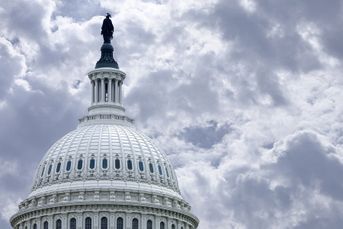DOL fiduciary rule already proving to be harmful and onerous
The Financial Services Institute has urged the DOL to delay full implementation of the rule until April 10, 2019. But a delay alone will not be enough, according to the trade group.
With the DOL fiduciary rule beginning to take effect earlier this year, it is becoming more clear each day that the warnings raised by the Financial Services Institute and our members about the rule’s dangers for Main Street American investors are rapidly coming true. Fortunately, some members of Congress are continuing to oppose this rule, while working to define a uniform fiduciary standard that makes sense for investors and the industry.
FSI was pleased to be invited to testify before the House Financial Services subcommittee on Capital Markets, Securities and Investment earlier this month, to voice our full support of a draft bill by Representative Ann Wagner (R-Mo.) that would replace the DOL rule with a vastly more workable uniform standard of care, enforced by the SEC as the appropriate jurisdictional agency. The bill would also provide for streamlined disclosures in order to communicate possible conflicts of interest.
(More: Driving clarity on Finra’s rules on outside business activities)
1st Global president and FSI board member David Knoch, who will serve as our vice chair in 2018, spoke on FSI’s behalf before the subcommittee. As Mr. Knoch made clear in his testimony, the rule has already begun to hurt smaller investors across the country.
The rule has, for example, already made it more difficult for independent firms to support direct business between investors and mutual fund companies. Direct business, in which a client’s mutual fund investments are custodied with the fund company itself, is typically the least expensive way for clients to hold mutual funds, and is commonly used by Main Street investors.
Since many of these investments would force advisers to rely on the DOL rule’s onerous and plaintiff attorney-friendly best-interest contract exemption, however, many advisers have begun to move these clients’ accounts onto their broker-dealers’ own level-fee platforms, where net expenses for the clients are frequently higher.
1st Global has already seen a 10% decline in the number of client accounts held directly with mutual fund companies, and expects the total number of direct client accounts to drop 35% year-over-year, by the end of 2017.
The company is also encountering difficulties in supporting small business retirement plans under the DOL rule. Many of its affiliated advisers have ceased to offer SIMPLE IRAs – a crucial retirement savings tool for many startups and other small businesses across the country – as 1st Global and other firms have been challenged to serve these accounts on an economically viable basis under the new rule’s requirements.
(More: Encourage financial literacy by speaking to clients’ emotional priorities)
Clearly, smaller investors are already feeling the negative impacts of this destructive and costly new regulation – and many of our members believe it will only get worse from here.
In addition to supporting Rep. Wagner’s bill and other legislation that would repeal the fiduciary rule, we are fully engaged in ongoing dialogue with the Department of Labor, which, under new Secretary Alexander Acosta, is making strides toward reviewing and potentially altering the rule.
We have submitted a comment letter to the department as part of its current Request for Information on potential revisions to the rule, and we are also encouraging it to extend the RFI’s deadline to allow more of the concerned members of our industry to weigh in.
Most immediately, we have urged the DOL to delay full implementation of the rule until April 10, 2019. A delay alone, however, will not be enough. FSI has consistently and forcefully argued – even prior to Dodd-Frank – in favor of a uniform fiduciary standard of care across the financial services industry. We continue to call for such a standard to be developed and overseen by the SEC today.
If this outcome should fail to be achieved, we would recommend discontinuing further implementation of the DOL rule. At the very least, we recommend that the department adopt the following measures:
1. Streamline BICE documentation and disclosure;
2. Create a single best-interest standard applicable to all investors;
3. Revise and broaden the reasonable compensation rules;
4. Revise the rules for IRA rollovers; and
5. Expand the rule’s grandfathering provisions.
(More: FSI renews efforts to scrap DOL rule and push for universal standard by SEC)
As we have long stated, FSI will pursue every available avenue in our ongoing efforts to oppose the DOL’s harmful and onerous fiduciary rule. We continue to work with legislators and the department itself to deliver on that pledge.
Dale Brown is president and CEO of the Financial Services Institute.
Learn more about reprints and licensing for this article.







